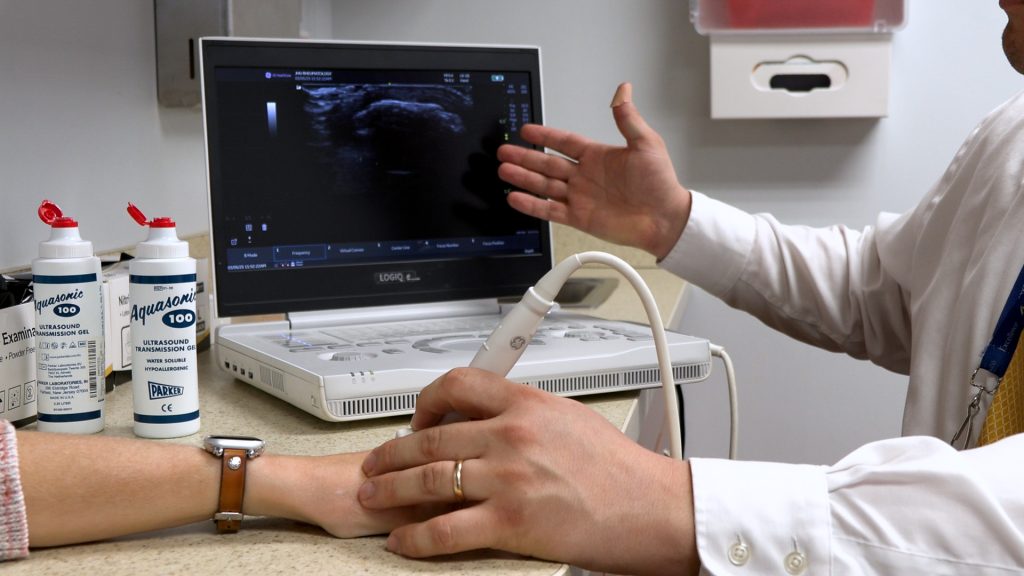Summary
A large Johns Hopkins study demonstrates that individuals diagnosed and treated for Lyme disease face a substantially higher risk of developing new-onset autoimmune inflammatory arthritis. By analyzing extensive health system claims data, researchers found that 1.6% of patients developed inflammatory arthritis within 1-2 years after Lyme disease diagnosis, nearly 10 times the rate in the general population.

Why was this study done?
Although Lyme disease has long been suspected to trigger autoimmune arthritis, previous reports were limited to case series and lacked population-level estimates. With nearly 500,000 new Lyme disease cases annually in the US, this study provides the first large-scale, data-driven assessment of autoimmune arthritis incidence following antibiotic-treated Lyme disease infection. The study estimates the true burden of autoimmune complications after acute Lyme disease.
How was this study done?
Led by John Miller, MD, Assistant Professor of Medicine, Division of Rheumatology, Johns Hopkins University School of Medicine, and John Aucott, MD, Director of the Johns Hopkins Lyme Disease Research Center and Clinical Care Program, the team conducted a retrospective analysis using administrative claims data from the Johns Hopkins Health System (2013-2024). Lyme disease cases were identified, antibiotic treatment verified, and subsequent inflammatory arthritis diagnoses confirmed through detailed chart reviews to ensure accuracy. Patients with Lyme disease were compared to those with influenza, a post-acute infection control group not typically associated with post-infectious arthritis.
What were the major findings?
- Within 1-2 years of a Lyme disease diagnosis, 1.6% of patients developed new-onset inflammatory arthritis, a rate nearly 10 times higher than the general population.
- The combined incidence of rheumatoid arthritis (RA), psoriatic arthritis (PsA), and spondyloarthritis was about 12 times higher than expected in the general population.
- Lyme patients had more than a threefold higher risk compared to influenza controls (1.67% vs. 0.45%).
- After adjustment for age and sex, Lyme disease patients had 3.76 times the risk of developing inflammatory arthritis, with most cases arising in the first year after infection.
- The strong association persisted regardless of pathophysiological mechanism, underscoring the need to consider autoimmunity in patients presenting with joint pain after Lyme disease.
What is the impact of this work?
This study provides the first large-scale, quantitative population-level estimate of autoimmune arthritis risk following Lyme disease. As Lyme disease cases continue to rise, recognizing this link is essential for early detection, diagnosis, and management of inflammatory arthritis in this patient group.
For clinicians, it highlights the importance of monitoring for inflammatory joint pain in patients with a Lyme disease history, as new-onset autoimmune arthritis is a significant, though relatively uncommon, and often under-recognized complication.
These findings validate concerns over long-term Lyme disease-associated complications and reinforce the need for clinical vigilance, early intervention, and ongoing research into mechanisms linking Lyme disease infection with autoimmunity. Knowledge of the increased risk of arthritis after acute Lyme disease can help patients and healthcare providers recognize symptoms earlier, intervene sooner, and better manage long-term outcomes.
This research was supported by The Lyme Disease Research Foundation of Maryland
Study team members:
John B Miller, MD
Brittany L Adler, MD
Ana-Maria Orbai, MD
Ami A Shah, MD
Elizabeth Szymanski, MD
Laura M Prichett, PhD
John N Aucott, MD
Division of Rheumatology, Johns Hopkins University School of Medicine
BEAD Core, Johns Hopkins University School of Medicine


